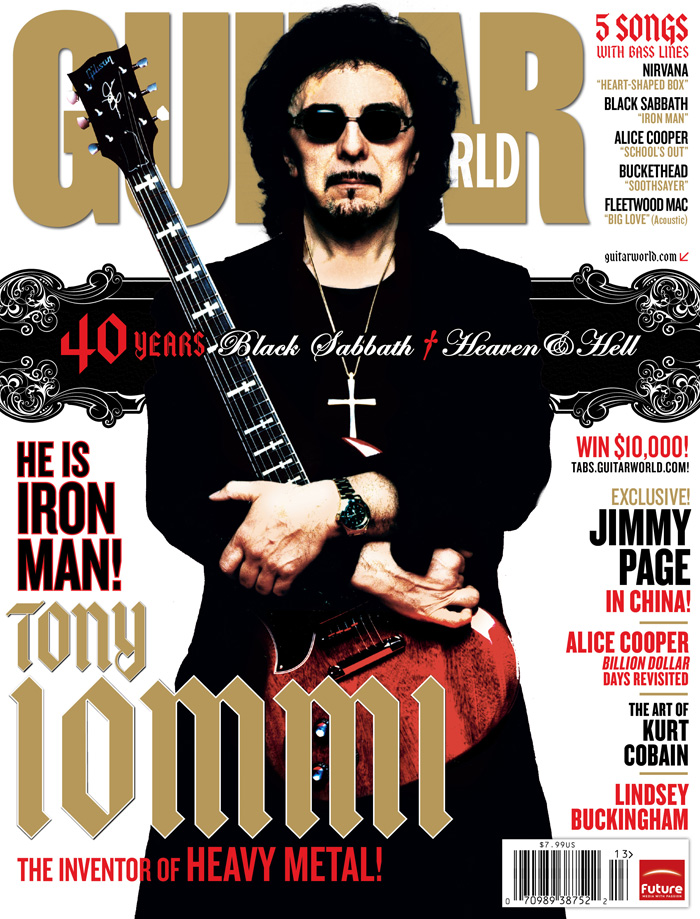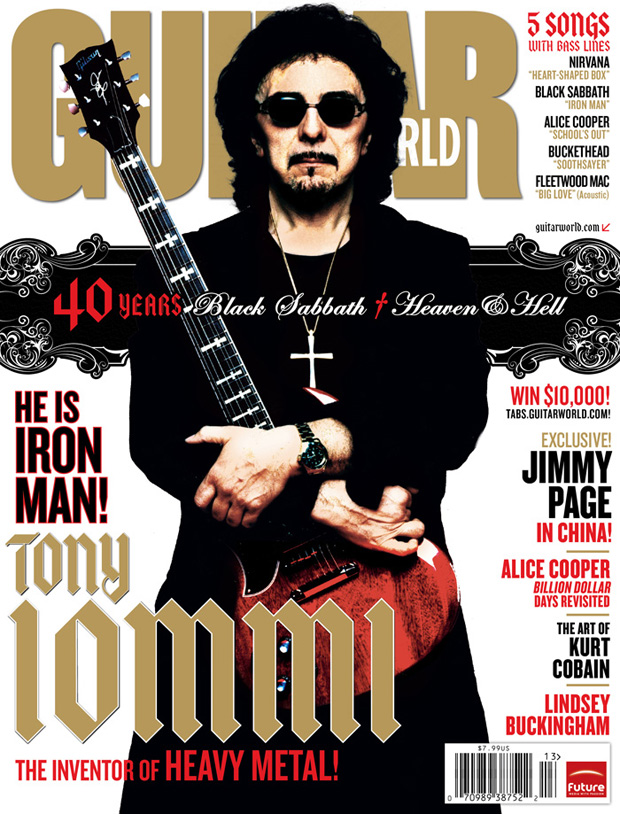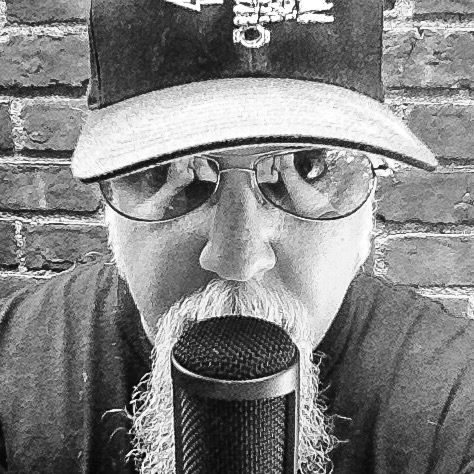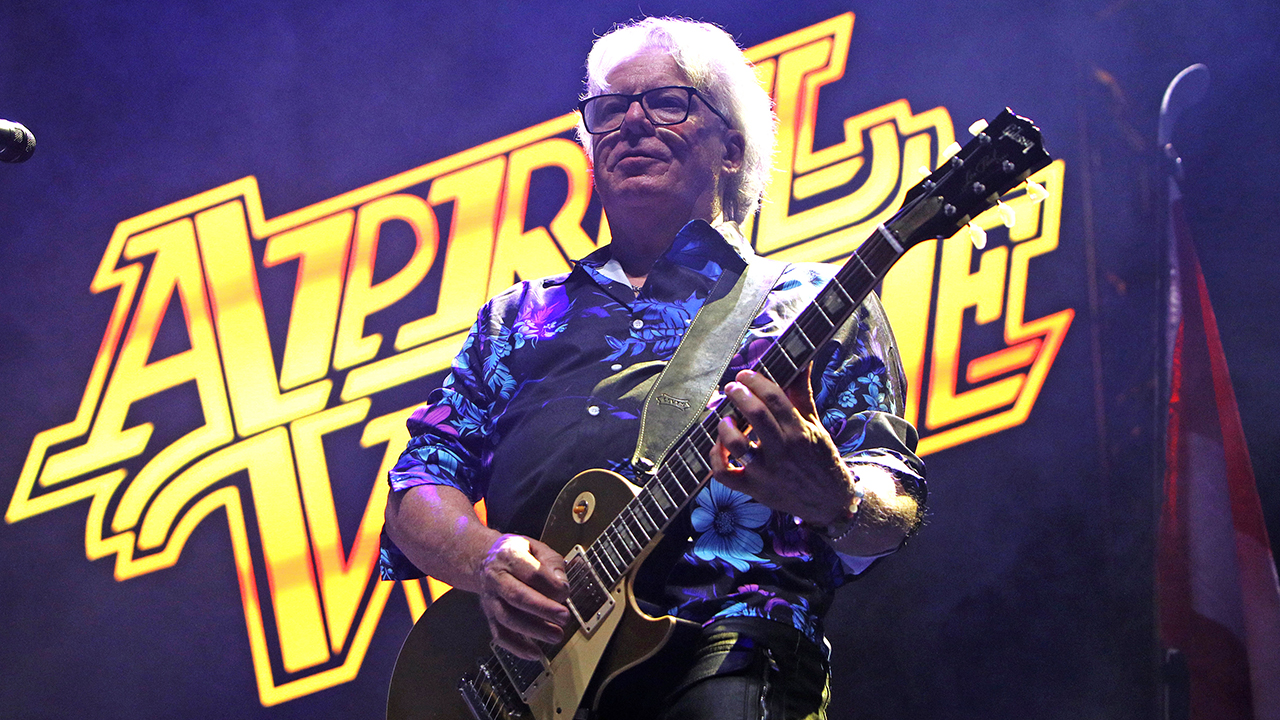Tony Iommi Talks Dio, Van Halen, Judas Priest and More in Outtake from 2008 Guitar World Interview
All the latest guitar news, interviews, lessons, reviews, deals and more, direct to your inbox!
You are now subscribed
Your newsletter sign-up was successful

From the GW archive: This is an unpublished segment from Chris Gill's interview with Tony Iommi for the Holiday 2008 issue of Guitar World. For the complete interview, pick up the Holiday 2008 issue of GW at the Guitar World Online Store.
GUITAR WORLD: The blues were very big in England when you started playing with bands in the early and mid Sixties. What other bands were you listening to?
I liked John Mayall’s Blues Breakers. I thought they were really good. Of course Eric Clapton was a part of that. I liked the work that Clapton did later with Cream, but I really liked what he was playing with John Mayall. I listened to all kinds of blues records. I really can’t remember any names of the players because I listened to a lot of different things. From that I got into bluesy jazz, and it was the same thing.
After you had the accident that sliced off the tips of your two right hand fingers, were you tempted to switch to playing right handed?
If I knew what I know now I probably would have switched. At the time I had already been playing two or three years, and it seemed like I had been playing a long time. I thought I’d never be able to change the way I played. The reality of the situation was that I hadn’t been playing very long at all, and I probably could have spent the same amount of time learning to play right handed. I did have a go at it, but I just didn’t have the patience. It seemed impossible to me. I decided to make do with what I had, and I made some plastic fingertips for myself. I just persevered with it.
The title of the song “Black Sabbath,” and consequently the band’s name, were derived from an Italian horror film starring Boris Karloff. Unlike most other bands in England at the time, Black Sabbath seemed to be fascinated with underground culture.
In the early days Geezer and I were constantly going to see horror films at the midnight movies. We were really into that and we liked the idea of writing songs that evoked the same spirit as horror films and comics. We got involved with more controversial things over time, but we won’t go into that.
All the latest guitar news, interviews, lessons, reviews, deals and more, direct to your inbox!
Judas Priest emerged in Birmingham around the time Black Sabbath released its first album. Were you aware of them back then?
Yes. I was aware of them. I had started up an agency to try to help bands. Ric Lee from Ten Years After and I put some money together to rent some offices and hire some booking agents. We tried to help local bands, and Judas Priest was one of the bands that came to us. I gave them some equipment and helped them get some work. At the end of the day the agency had to close down because I was in America on tour and Ric was doing tours with Ten Years After. Nobody was there apart from the people we hired. Eventually one of our booking agents took Judas Priest away to manage them.
Bands like Black Sabbath and Judas Priest really defined the sound of metal music, and both bands are from Birmingham. How did Birmingham influence your music?
Where we lived was crap, really. I worked in a factory and was around sheet metal all day. The area we lived in was a bit rough. There were gangs and whatnot. It’s hard to get out of that gloom. But we loved our music. That was our opening to get out. Instead of joining gangs we turned to music.
For the Never Say Die tour you made the rather bold move of bringing this hot young band, Van Halen, out as your opening act.
We’d taken out a lot of really hot bands with us before then, like Boston. We weren’t frightened of doing that. We just wanted to put on a good show. I really liked what Van Halen were doing, and they were really big fans of us as well. They were out on the road with us for eight months, and we became fairly close.
How did Ronnie James Dio join Black Sabbath?
I saw Ronnie at a party and we had a chat. I was really in a rut and I knew that I had to do something. We spoke a few more times after that, and after Ozzy left I gave him a call and asked if he’d fancy having a go with the band. We had this house in L.A. where we all lived, and we had set up a studio in the garage. Ronnie came over and we played him one of the riffs we had been working on. When he sang over it we looked at each other and went, “Bloody hell! This is it.” And it was. I had an idea what it was going to sound like because I had heard all of the stuff Ronnie had done with Rainbow, but it still was magnificent.
What did you think when you heard the first Ozzy’s Blizzard of Ozz album with Randy Rhoads?
It was quite good. I loved Randy’s playing. I didn’t rush out right away to buy Ozzy’s album because I was into what we were doing at the time. But I was pleased for Ozzy. It was the spark that got him going, and it was exactly what he needed.
I’ve heard rumors that Black Sabbath appeared on a magazine cover with Spinal Tap in the early Eighties. Were you aware that they were a heavy metal parody band then?
When they approached us about doing the cover I asked, “Who the hell is Spinal Tap?” I was told that they were doing a movie. Geezer and I showed up to do these photos with them and through the whole thing I was none the wiser that they weren’t a real band. When I finally saw the movie I was going, “Oh bloody hell!”
In 1997 you were trying to start a project with Rob Halford. Why did that never come to be?
Bob Marlette was doing production for Rob’s band at the time [the Two project with John Lowery, aka John5]. Rob was telling me how good Bob was, and we were going to do something together. When I got over there Rob’s manager decided to put the kibosh on it. He tried to make it seem like I was joining Rob’s band, but that wasn’t quite right. It just didn’t work. Rob is a lovely guy, but we just couldn’t work then because there were too many fingers in the pot. Unfortunately sometimes artists aren’t always allowed to be artists.
What led to you finally doing your first proper solo album in 2000?
I had a bunch of different singers approaching me, so it made it easier to make the album that I wanted to make. When the word got out people started approaching me. My manager and Sharon Osbourne went out and found me a bunch of people who were interested. Once we recorded a few songs the whole thing just snowballed. Singers started appearing out of the woodwork. I also wanted different drummers and bass players so I could do different things on each song.
It was a bit of a challenge. When we went into the studio with Billy Corgan we didn’t have anything written to record. We started from scratch, and I started to record some riffs. Before we knew it we had this song with all these different changes in it. We were playing it live and recording it. It happened really quickly. That was really inspiring. The new music I’m coming up with now is coming together very quickly.
Looking back at your immense body of work, are there any particular moments that really stand out to you?
I’ve just been amazed at how my whole career has gone. These days I’m getting all these awards for the first time in 40 years. But I guess that’s what it’s all about when you’ve been around for a while. That’s what lifetime achievement awards are for.

Chris is the co-author of Eruption - Conversations with Eddie Van Halen. He is a 40-year music industry veteran who started at Boardwalk Entertainment (Joan Jett, Night Ranger) and Roland US before becoming a guitar journalist in 1991. He has interviewed more than 600 artists, written more than 1,400 product reviews and contributed to Jeff Beck’s Beck 01: Hot Rods and Rock & Roll and Eric Clapton’s Six String Stories.

